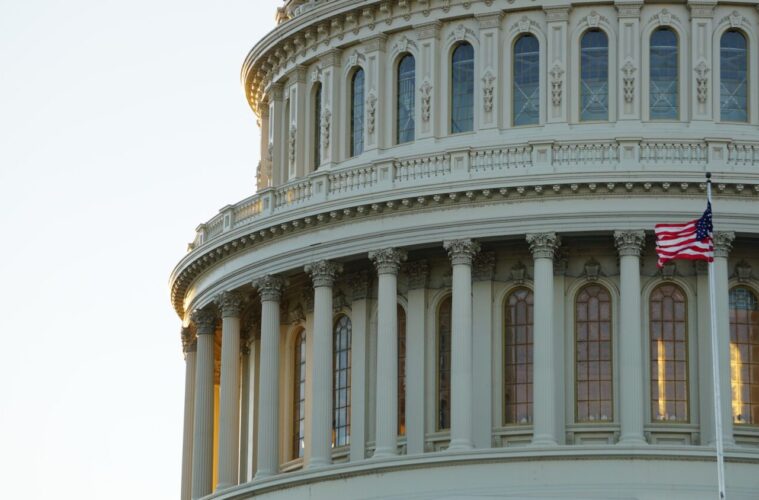The SAFE Banking Act is back, and the once common-sense approach to support cannabis businesses is slightly less controversial this year.
The SAFE Banking Act’s general idea is to provide legitimate financial services to cannabis companies that fully comply with state law. The actual mechanism to make it happen is essentially creating a way for financial institutions to work with the cannabis industry without the threat of feeling the wrath of the feds.
In a sense, the language around the safe banking act is more about protecting banks than opening doors for cannabis businesses. Once you create the protections offered in the SAFE Banking Act, the banks can open their doors.
The protections as described by the bill’s sponsors this year, won’t allow federal banking regulators to:
- Prohibit, penalize or discourage a bank from providing financial services to a legitimate state-sanctioned and regulated cannabis business, or an associated business (such as a lawyer or landlord providing services to a legal cannabis business);
- Terminate or limit a bank’s federal deposit insurance primarily because the bank is providing services to a state-sanctioned cannabis business or associated business;
- Recommend or incentivize a bank to halt or downgrade providing any kind of banking services to these businesses; or
- Take any action on a loan to an owner or operator of a cannabis-related business.
“But Jimi, I used my debit card at the dispensary three hours ago?”
Yes. There are certain loopholes. The more balling out you are, the easier it is to create an offshore mechanism to move cash. Unfortunately, this isn’t always available for everyone. Many of these institutions can charge up to a few thousand a month in fees to provide you access to basic services. The small operators that can’t swing those types of service fees are left at a disadvantage against the chain store across town that can take cards.
So not only is SAFE Banking going to protect banks, there is certainly an argument to be made that it will help level the playing field, too.
But what if you’re from a community that has had less access to traditional forms of capital, period, nevermind cannabis? This point was raised by Amber Senter of Supernova Women, the group that helped jumpstart the national social equity conversation in the mid-2010s.
“The SAFE Banking Act is an interesting subject for Black operators. Primarily because I don’t think it will ever benefit Black operators,” Senter told L.A. Weekly in 2021. “Have you seen the statistics of Black businesses getting bank loans across other industries? The numbers are staggering and pathetic. And to believe that banks will give Black cannabis businesses money?”
And due to this reality, SAFE Banking has never had full support across the board.
But to be fair, if I didn’t think I would benefit from it, I would hold it up to get a piece of the pie as well. What is that piece of the pie? More social equity provisions are being included in whatever federal legalization looks like. Over the last few years, Senator Cory Booker had made it his personal mission to see that become a reality.
But 2023 has seen Booker change the tune a bit. He’s still a massive advocate for communities of color in the cannabis industry, but he’s come to terms with how bad things are getting in the industry. A week before SAFE Banking was reintroduced, he said it was coming back to help save the hundreds of small businesses on the verge of collapse in the cannabis industry.
In addition to saving businesses, the most obvious aspect of banking reform was public safety. The giant piles of cash that cannabis dispensaries are forced to sit on have proven a lucrative target, on top of all the product being stolen and absorbed by the black market. Some robberies in California have seen pro safe-cracking crews get in and out with cash hauls north of $150,000. I wouldn’t be surprised if there were even bigger hauls that have been kept under wraps, for the sake of not being revictimized.
UPDATE:
On Thursday after this was already filed for print, the U.S. Senate Committee on Banking, Housing, and Urban Affairs hosted a hearing on the current banking challenges the industry is facing.
Ahead of the hearing, the National Cannabis Industry Association , the National Cannabis Roundtable (NCR), Minorities for Medical Marijuana), the U.S. Cannabis Council (USCC), the Minority Cannabis Business Association), the National Hispanic Cannabis Council (NHCC), and the American Trade Association for Cannabis and Hemp (ATACH), released the following joint statement.
“We thank Chairman Brown and Ranking Member Scott for hearing our call for urgent action on the SAFE Banking Act in scheduling this week’s important hearing. This discussion could not be more timely given the industry is currently in crisis. Small operators are struggling to stay in business and compete with a growing illicit market and Chinese-backed entities that are benefitting from federal inaction on cannabis reform. By providing state-regulated cannabis businesses access to capital and the financial services afforded other domestic industries, we are giving small businesses and minority entrepreneurs an opportunity to not only survive but thrive – improving public safety and consumer health in the 38 states where cannabis is legal in some form. We look forward to continuing to work with lawmakers as the SAFE Banking Act moves forward to ensure that state-legal cannabis companies at long last are afforded meaningful access to capital when this bipartisan bill is signed into law.”
We’ll keep an eye on things in the months to come.
Advertising disclosure: We may receive compensation for some of the links in our stories. Thank you for supporting LA Weekly and our advertisers.

